We've already been giving away or selling treasured family heirlooms, because they did not fit or could not be used. I've been mentally apologizing to my great-grandchildren for disposing of antiques, Including the drop-leaf table that probably belonged to my grandmother Bessie Randall; I can remember seeing it on the screened-in porch of my Grandma & Grandpa Stoelt's home in Detroit. The reason I know it was Bessie's is because it had a special tablecloth - cream colored linen with dark blue cross-stitch, made by her before she died in 1931 - which I still have.
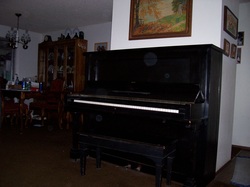
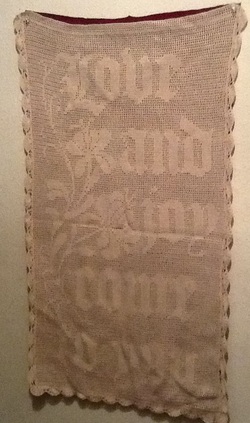
- " [John Reade] had practically nothing of his own except his Bible, with marginal references and notes written in his own hand on nearly every page. (This bible is now in the possession of Mrs. Carry Dusenberry, Pentwater, R.F.D. Mich., who is half-sister to J.L. Reed, John Reed's son and my grandfather." (written by Maurice Leonard Reed, about 1925)
- "[John Reade] kept an account book "John Reads Booke and Propperty, Derry Township, Westmoreland County, Pennsylvania State of September 20, 1839 John Read" This book is now in my possession, over a century old, contains inside the date 1838, even earlier than the one on the fly leaf. 50¢ per day was the wage he got most of the time." (source: "Notes on the Benjamin Curtis tree," unpublished MSS,
- "The Beem table service was of good steel knives, with horn handles, two-tined steel forks, also horn-handled and thin silver teaspoons marked with "B.W." and "N.S." and by the toothprints of the generations of Webb and Beem babies. These spoons are now scattered among grand and great-grandchildren." (Source: Ada Fitzsimmons Bishop, "Incidents in the Life of John and Betsy Beem," Reading (MI) Hustler, series of articles published November 1940.)
Now, whenever I long for the treasures that have been discarded by my ancestors or lost to the past, I will remember my own process of letting go of what I couldn't keep, and feel a little more understanding for the women on the Oregon Trail.
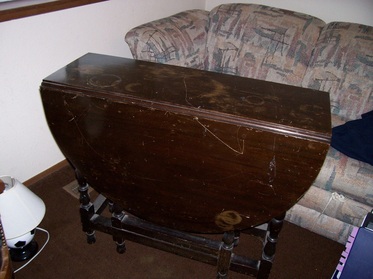
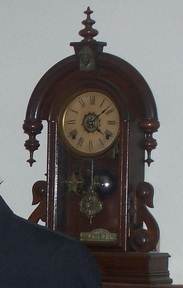
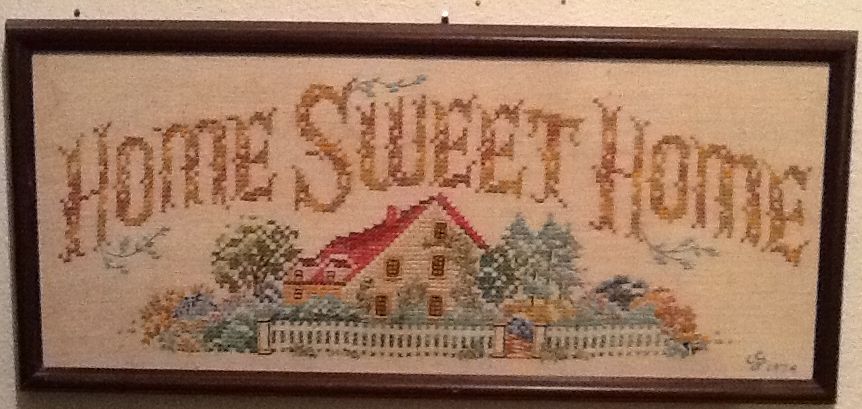
 RSS Feed
RSS Feed